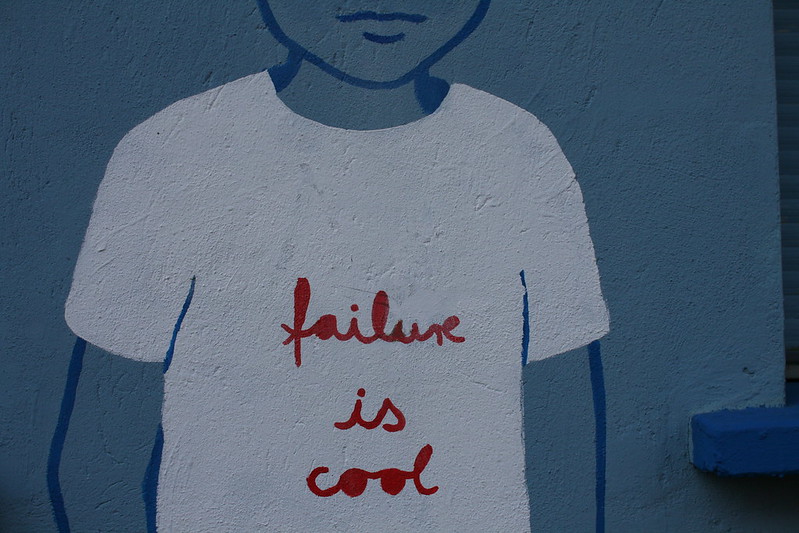On failure and sharing it with our children by Ori Lenkinski

*originally published in Hebrew in Haaretz
One Monday night, around 7:30 PM, I walked into my apartment. My two girls, wet-haired and in pajamas, ran to meet me at the door. I mustered the best smile I could, hugged each one and put down my bag. A quick glance to my husband cued him in on how crushing the evening’s meeting had been. In fact, I was returning from one of the more exquisite moments of failure of my career.
Honestly, my career has been full of these. Failure, rejection, humiliation, defeat. The price paid for instances of true fulfilment and inspiration. I sometimes wonder, particularly in these downtrodden times, if my professional journey has included more no’s than the average one. In the end, it doesn’t really matter. My path is mine and I cannot walk another’s, even if it is paved more smoothly.
If I think back, the failures I took the hardest weren’t always the biggest or most important. There were days that I was able to take rejection in stride and others when I was blindsided. Some no’s hurt more than others. Some took a day to recover from, others lingered for weeks. Sometimes it’s about the tone or circumstances, sometimes about expectation, sometimes about surroundings.
After settling into the evening routine, teeth brushed and stories read, my older child asked me why I was sad. For a second, I considered making up some story about why my aura had the oomph of a deflated balloon, one that would make me look good and would conceal how truly beat I felt. I asked myself if it is even appropriate to share my failure with my kids.
I don’t remember my parents failing. I remember my dad getting a promotion, receiving a big grant he had spent months writing. I remember my mother graduating from university and, later, getting her masters. We went out to restaurants to celebrate their milestones, we ordered chocolate cake. I don’t recall seeing their long faces or overhearing pep talks between them. Maybe that’s because I was a child and children tend to screen out the tough stuff. Or maybe my parents believed that sharing their struggles with us would mar our opinion of them. They needed to be all-knowing, all-succeeding superheroes to us.
It is important to me that my kids see me as strong, capable, independent and brave. I relish in their admiration of my abilities; be it pancake making, assembling Ikea furniture or going on stage. But when I think of the values that I can pass on to my children from the life I have and continue to live, the things I have learned for myself, not the ones that were taught to me, I think of resilience. I think of how important it is to be able to endure defeat. Rejoicing in success is natural, easy, but picking yourself up from rejection takes work, it takes optimism and strength and stubbornness. It is necessary in our professional and personal lives.
We tell our kids that they should try things, that if they fall, they should get up and try again. There are countless jingles about it. But in what better way can I show them that failure is part of life than to share mine with them?
“I applied to a festival and the people who decide said that my work wasn’t good enough,” I told her.
“That’s why you’re sad?” she asked.
“Yup. It really hurt to hear that,” I said.
Immediately understanding, she snuggled up to me for a few seconds and then moved on towards bedtime.
For a moment, it seemed possible to let the excruciating evening go with the same nonchalance as my child had.
